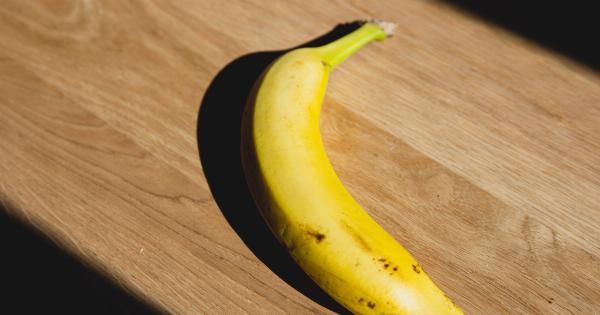When it comes to protecting our skin from harmful UV rays, sunscreen is often the first thing that comes to mind.
While sunscreen is undoubtedly important, there are also several sun-protective foods that can help guard our skin against sun damage from the inside out. Incorporating these foods into your diet can give your skin an extra layer of defense and promote healthy, glowing skin. In this article, we will explore 30 sun-protective foods that you can start including in your meals and snacks.
Fruits
1. Citrus Fruits.
Citrus fruits like oranges, lemons, and grapefruits are rich in vitamin C, which is a potent antioxidant.
Vitamin C helps protect the skin from free radicals caused by sun exposure and can also promote collagen production, keeping your skin firm and elastic.
2. Watermelon.
Watermelon is not only a refreshing summer fruit but also a great source of lycopene. Lycopene acts as a natural sunblock, protecting your skin from UV damage and helping to prevent sunburn.
3. Strawberries.
Strawberries are packed with antioxidants and vitamin C, making them a perfect addition to your sun-protective diet. The high vitamin C content aids in collagen synthesis and repairs damaged skin.
4. Tomatoes.
Tomatoes are loaded with lycopene, making them a powerful ally in protecting your skin from sunburn and premature aging. Cooking tomatoes with a healthy fat source like olive oil can enhance the absorption of lycopene.
5. Pineapple.
Pineapple contains bromelain, an enzyme known for its anti-inflammatory properties. This enzyme can help reduce redness and inflammation caused by sunburn or prolonged sun exposure.
Vegetables
1. Carrots.
Carrots are not just great for your eyesight; they also contain beta-carotene, a natural pigment that can help protect your skin against sun damage. Regular consumption of carrots can even give your skin a subtle golden glow.
2. Sweet Potatoes.
Similar to carrots, sweet potatoes are rich in beta-carotene. The body converts beta-carotene into vitamin A, which plays a crucial role in repairing and maintaining skin tissue.
Including sweet potatoes in your diet can help improve your skin’s resilience against the sun.
3. Spinach.
Spinach is a leafy green vegetable packed with antioxidants, including beta-carotene and lutein. These antioxidants can help shield your skin from free radicals and improve skin elasticity.
4. Kale.
Kale is another leafy green that boasts high levels of beta-carotene and antioxidants, making it a fantastic addition to your sun-protective diet. It also contains vitamin E, which can help reduce skin damage caused by harmful UV rays.
5. Bell Peppers.
Bell peppers, particularly the red and yellow varieties, are rich in antioxidants such as vitamin C and beta-carotene. These antioxidants can help neutralize free radicals and protect your skin against sun damage.
Nuts and Seeds
1. Almonds.
Almonds are a fantastic source of vitamin E, which is known for its skin-nourishing benefits. Vitamin E helps moisturize the skin, reduce inflammation, and protect against UV damage.
2. Sunflower Seeds.
Sunflower seeds are rich in selenium, an essential mineral that plays a crucial role in protecting the skin from premature aging caused by sun exposure. Adding a handful of sunflower seeds to your diet can provide an extra layer of sun protection.
3. Flaxseeds.
Flaxseeds are packed with omega-3 fatty acids, which help maintain the skin’s integrity and barrier function. These fatty acids also possess anti-inflammatory properties that can help soothe sun-damaged skin.
4. Walnuts.
Walnuts are a great source of omega-3 fatty acids, vitamin E, and antioxidants. Including walnuts in your diet can help enhance skin elasticity, fight inflammation, and protect your skin against free radicals.
5. Chia Seeds.
Chia seeds are rich in omega-3 fatty acids, antioxidants, and minerals such as zinc and selenium. These nutrients work together to protect your skin from sun damage and keep it healthy and vibrant.
Seafood
1. Salmon.
Salmon is an excellent source of omega-3 fatty acids, which can reduce inflammation and help protect your skin from sunburn and UV-induced damage. Including salmon in your diet can improve your skin’s overall health and appearance.
2. Shrimp.
Shrimp contains astaxanthin, a powerful antioxidant that gives this seafood its reddish color. Astaxanthin can help protect your skin from UV damage, promote a youthful complexion, and reduce the signs of aging.
3. Sardines.
Sardines are rich in omega-3 fatty acids, vitamin D, and selenium. These nutrients have various skin benefits, including protecting against sun damage, reducing inflammation, and promoting collagen production.
4. Oysters.
Oysters are an excellent source of zinc, a mineral crucial for skin health. Zinc helps repair damaged skin, reduce inflammation, and support the production of collagen and elastin.
5. Tuna.
Tuna is a fish that contains selenium, which acts as an antioxidant to protect the skin from UV damage. It also provides omega-3 fatty acids that help reduce inflammation and maintain healthy skin.
Conclusion
Including sun-protective foods in your diet is a delicious and natural way to fortify your skin against the harmful effects of the sun.
From fruits and vegetables to nuts, seeds, and seafood, the variety of foods available ensures that you can find something to suit your taste and dietary preferences. Remember to combine these sun-protective foods with other sun safety measures, such as wearing sunscreen and seeking shade when the sun is at its strongest.
By taking a holistic approach to sun protection, you can enjoy healthy, radiant skin for years to come.






























